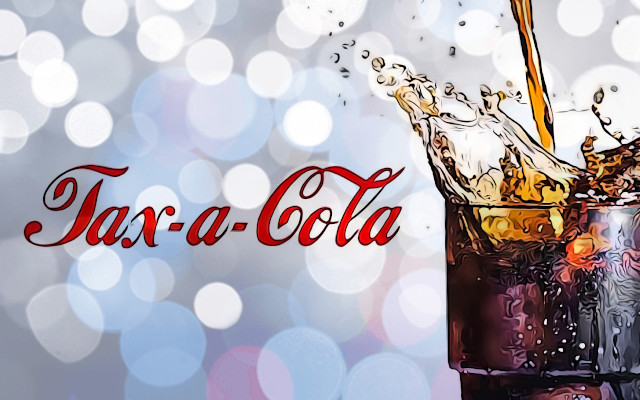The Constitutional Court rejected the question of constitutional legitimacy of the ‘sugar tax’ raised in vain by Assobibe, the Italian association of soft drink producers. The epilogue of a saga that has been going on for four years is thus approaching, awaiting the application of the tax on sugary and/or sweetened drinks, finally scheduled for July 2024, after yet another extension granted by Giorgia Meloni’s government.
Sugar tax on sweet drinks, 4 year extensions in Italy
The introduction of the sugar tax is due to the second government of Giuseppe Conte. The finance law for 2020 had in fact provided for a tax of
- 10 euros per hectoliter on finished products containing more than 25 grams/liter of sweeteners.
- 0,25 euros per kg on products to be consumed after dilution containing more than 125 grams/kg of sweeteners (law 27 December 2019 n. 160, article 1, paragraph 661-676).
The tax applies to non-alcoholic drinks (alcohol by volume less than or equal to 1,2%) sweetened with any substance, of natural or synthetic origin, capable of imparting a sweet flavor to the drinks. (1) In fact, synthetic sweeteners also promote obesity, warns WHO. (2)
A healthy tax
The spirit of the sugar tax is to protect the population, young people first and foremost, from the effects of the consumption of soft drinks. Obesity and overweight starting from childhood, as we have seen, but also type diabetes and other serious and chronic diseases (NCDs, Non-Communicable Diseases). (3)
The usefulness of the sugar tax is well expressed by the experience lived in the countries that introduced it well before Italy.
The poor eat worse than the rich
Exemplary is the case in the United Kingdom, where the percentage of drinks containing >5 g of sugar/100 ml fell from 49% to just 15%, between September 2015 and February 2019, with an acceleration of reformulation following the announcement in 2016 of the decision to introduce the sugar tax.
A study measured the effect of the tax on youth obesity in the UK, finding an 8% reduction in obesity rates in 10-11 year old females. And the greater effectiveness of the sugar tax has emerged in the most disadvantaged areas, confirming the unfoundedness of the statement that ‘the poor eat better than the rich’.
Big Soda’s Resistance
The sector industry has strenuously opposed the introduction of the sugar tax in Italy. It has obtained extensions for four years, the last time by the Meloni government, four months ago. (5) And it has even appealed to the Lazio Regional Administrative Court, with an incidental appeal to the Constitutional Court, to object the unconstitutionality of the measure, for hypothetical opposition to the principle of tax equality.
The protest continues, even after the pronouncement of the guardians of the Constitution. The rhetoric is based on the usual arguments, also used by Big Alcohol and Big Tobacco:
- hypothetical scenario of catastrophic damage to the industry and risk of job losses
- individual responsibility. The freedom of choice of the individual should be respected,
- inequity and fear of burdening the less well-off sections of society with new taxes. Precisely those most affected by diabetes and other diseases related to unhealthy diets and unbalanced industrial foods, in fact. (6)
The decision of the Constitutional Court
The Constitutional Court, with a ruling of 7 February 2024 filed on 26 March 2024, definitively cleared away the specious arguments cited, deciding that the sugar tax
– does not pose any profile of constitutional illegitimacy,
– aims to discourage the marketing and consumption of specific products deemed harmful to health,
– can therefore prevent an increase in public spending, reducing the use of the National Health Service for treatment. (7)
Marta Strinati
Footnotes
(1) See Law 27 December 2019, n. 160. State budget forecast for the financial year 2020 and multi-annual budget for the three-year period 2020-2022. (19G00165) (GU General Series n.304 of 30-12-2019 – Ordinary Supplement n. 45) https://www.gazzettaufficiale.it/eli/id/2019/12/30/19G00165/sg
(2) Marta Strinati. ‘Sugar free’? Synthetic sweeteners are useless and harmful, warns WHO. GIFT (Great Italian Food Trade). 15.5.23
(3) Marta Strinati. Soft drinks and obesity in adolescents, the study in 107 countries. GIFT (Great Italian Food Trade). 31.7.23
(4) Marta Strinati. Sugar tax. 5.000 fewer cases of obesity among British girls. GIFT (Great Italian Food Trade). 28.1.23
(5) Sugar tax. Assobibe on Maneuver 2024: The postponement to July is important, but set at + 28% it will cause a -15,6% in sales. Agriculture. 30.12.23 https://www.agricultura.it/2023/12/30/sugar-tax-assobibe-su-manovra-2024-importante-lo-slittamento-a-luglio-ma-imposta-a-28-provochera-un-156-di-vendite/
(6) Marta Strinati, Dario Dongo. Soda tax, here’s how Big Food counteracts health policies. And how to react. GIFT (Great Italian Food Trade). 7.10.22
(7) Sentence 49/2024 (ECLI:IT:COST:2024:49). Constitutional Court https://www.cortecostituzionale.it/actionSchedaPronuncia.do?param_ecli=ECLI:IT:COST:2024:49
Professional journalist since January 1995, he has worked for newspapers (Il Messaggero, Paese Sera, La Stampa) and periodicals (NumeroUno, Il Salvagente). She is the author of journalistic surveys on food, she has published the book "Reading labels to know what we eat".








